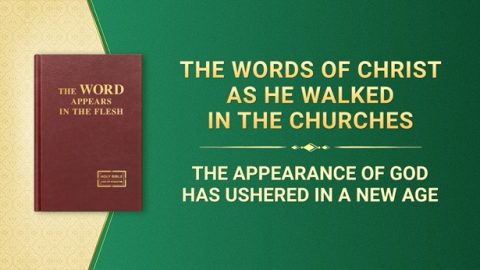b. Why the Lord Jesus cursed the Pharisees, and what the essence of the Pharisees was
Words From the Bible
“Then came to Jesus scribes and Pharisees, which were of Jerusalem, saying, Why do Your disciples transgress the tradition of the elders? for they wash not their hands when they eat bread. But He answered and said to them, Why do you also transgress the commandment of God by your tradition? For God commanded, saying, Honor your father and mother: and, He that curses father or mother, let him die the death. But you say, Whoever shall say to his father or his mother, It is a gift, by whatever you might be profited by me; And honor not his father or his mother, he shall be free. Thus have you made the commandment of God of none effect by your tradition. You hypocrites, well did Esaias prophesy of you, saying, This people draws near to Me with their mouth, and honors Me with their lips; but their heart is far from Me. But in vain they do worship Me, teaching for doctrines the commandments of men” (Matthew 15:1–9).
“Woe to you, scribes and Pharisees, hypocrites! For you shut up the kingdom of heaven against men: for you neither go in yourselves, neither suffer you them that are entering to go in. Woe to you, scribes and Pharisees, hypocrites! For you devour widows’ houses, and for a pretense make long prayer: therefore you shall receive the greater damnation.
“Woe to you, scribes and Pharisees, hypocrites! For you compass sea and land to make one proselyte, and when he is made, you make him twofold more the child of hell than yourselves.
“Woe to you, you blind guides, which say, Whoever shall swear by the temple, it is nothing; but whoever shall swear by the gold of the temple, he is a debtor! You fools and blind: for whether is greater, the gold, or the temple that sanctifies the gold? And, Whoever shall swear by the altar, it is nothing; but whoever swears by the gift that is on it, he is guilty. You fools and blind: for whether is greater, the gift, or the altar that sanctifies the gift? Whoever therefore shall swear by the altar, swears by it, and by all things thereon. And whoever shall swear by the temple, swears by it, and by Him that dwells therein. And he that shall swear by heaven, swears by the throne of God, and by Him that sits thereon.
“Woe to you, scribes and Pharisees, hypocrites! For you pay tithe of mint and anise and cummin, and have omitted the weightier matters of the law, judgment, mercy, and faith: these ought you to have done, and not to leave the other undone. You blind guides, which strain at a gnat, and swallow a camel.
“Woe to you, scribes and Pharisees, hypocrites! For you make clean the outside of the cup and of the platter, but within they are full of extortion and excess. You blind Pharisee, cleanse first that which is within the cup and platter, that the outside of them may be clean also.
“Woe to you, scribes and Pharisees, hypocrites! For you are like to white washed sepulchers, which indeed appear beautiful outward, but are within full of dead men’s bones, and of all uncleanness. Even so you also outwardly appear righteous to men, but within you are full of hypocrisy and iniquity.
“Woe to you, scribes and Pharisees, hypocrites! Because you build the tombs of the prophets, and garnish the sepulchers of the righteous, And say, If we had been in the days of our fathers, we would not have been partakers with them in the blood of the prophets. Why you be witnesses to yourselves, that you are the children of them which killed the prophets. Fill you up then the measure of your fathers. You serpents, you generation of vipers, how can you escape the damnation of hell? Why, behold, I send to you prophets, and wise men, and scribes: and some of them you shall kill and crucify; and some of them shall you whip in your synagogues, and persecute them from city to city: That on you may come all the righteous blood shed on the earth, from the blood of righteous Abel to the blood of Zacharias son of Barachias, whom you slew between the temple and the altar. Truly I say to you, All these things shall come on this generation” (Matthew 23:13–36).
Words of Almighty God of the Last Days
Do you wish to know the root of why the Pharisees opposed Jesus? Do you wish to know the essence of the Pharisees? They were full of fantasies about the Messiah. What is more, they believed only that the Messiah would come, yet did not pursue the life truth. And so, even today they still await the Messiah, for they have no knowledge of the way of life, and do not know what the way of truth is. How, say you, could such foolish, stubborn and ignorant people gain God’s blessing? How could they behold the Messiah? They opposed Jesus because they did not know the direction of the Holy Spirit’s work, because they did not know the way of truth spoken by Jesus, and, furthermore, because they did not understand the Messiah. And since they had never seen the Messiah and had never been in the company of the Messiah, they made the mistake of clinging to the mere name of the Messiah while opposing the essence of the Messiah by any means possible. These Pharisees in essence were stubborn, arrogant, and did not obey the truth. The principle of their belief in God was: No matter how profound Your preaching, no matter how high Your authority, You are not Christ unless You are called the Messiah. Is this belief not preposterous and ridiculous?
—The Word, Vol. 1. The Appearance and Work of God. By the Time You Behold the Spiritual Body of Jesus, God Will Have Made Heaven and Earth Anew
How are the wicked parts of the Pharisees manifested? First, let’s start our discussion with how the Pharisees treated God incarnate, and then you might understand a bit more. Speaking of God incarnate, we must first talk about what kind of family and background God incarnate was born into two thousand years ago. First of all, the Lord Jesus was not born into a wealthy family at all—His lineage was not so distinguished. His foster father, Joseph, was a carpenter, and His mother, Mary, was an ordinary believer. The identity and social status of His parents represent the family background into which the Lord Jesus was born, and it is clear that He was born into a common family. … What message does this give to later generations? This ordinary and normal person, who was God incarnate, had neither the opportunity nor the conditions to receive higher education. He was the same as ordinary people, He lived in a common social environment, in an ordinary family, and nothing was special about Him. Precisely because of this, after hearing about the sermons and actions of the Lord Jesus, those scribes and Pharisees dared to stand up and openly judge, blaspheme, and condemn Him. What basis did they have for their condemnation? Undoubtedly, it was based on the laws and regulations of the Old Testament. First, the Lord Jesus led His disciples not to observe the Sabbath—He still worked on the Sabbath. In addition, He did not observe the laws and regulations and did not go to the temple, and when He encountered sinners, some people asked Him how to deal with them, but He did not handle them according to the law, instead showing them mercy. None of these aspects of the Lord Jesus’ actions conformed to the religious notions of the Pharisees. Because they did not love the truth and thus hated the Lord Jesus, they seized the pretext of the Lord Jesus violating the law to fervently condemn Him, and determined that He was to be put to death. If the Lord Jesus had been born into a prominent and distinguished family, if He had been highly educated, and if He had been on close terms with these scribes and Pharisees, then things at that time would not have gone for Him as they did later on—they might have changed. It was precisely because of His ordinariness, His normality, and the background of His birth that He was condemned by the Pharisees. What was their basis for condemning the Lord Jesus? It was those regulations and laws that they held on to, which they believed would never change for all of eternity. Pharisees held the theological theories that they grasped as knowledge and a tool with which to appraise and condemn people, even using it on the Lord Jesus. This is how the Lord Jesus was condemned. The way they appraised or treated a person never depended on the person’s essence, nor on whether what the person preached was the truth, and less still on the source of the words the person said—the way Pharisees appraised or condemned a person depended only on the regulations, words, and doctrine they grasped in the Old Testament of the Bible. Although the Pharisees knew in their hearts that what the Lord Jesus said and did was not a sin or a violation of the law, they still condemned Him, because the truths He expressed and the signs and wonders He performed made many people follow and praise Him. The Pharisees were increasingly hateful toward Him, and even wanted to remove Him from the picture. They did not recognize that the Lord Jesus was the Messiah who was to come, nor did they recognize that His words had the truth, less still that His work adhered to the truth. They judged the Lord Jesus to be speaking presumptuous words and driving out demons by Beelzebub, the prince of demons. That they could pin these sins on the Lord Jesus shows how much hatred they had for Him. Therefore, they worked fervently to deny that the Lord Jesus was sent by God, and that He was the Son of God, and that He was the Messiah. What they meant was, “Would god do things in this way? If god were incarnate, he would have been born into a family of formidable status. And he would have to accept tutelage from scribes and from the Pharisees. He would have to study the Scripture systematically, have a grasp of scriptural knowledge, and be equipped with all of the knowledge in the Scripture before being able to bear the name of ‘god incarnate.’” But the Lord Jesus was not equipped with this knowledge, so they condemned Him, saying, “Firstly, you are not thus qualified, so you cannot be god; secondly, without this scriptural knowledge you cannot do the work of god, much less can you be god; thirdly, you must not work outside the temple—you are not working in the temple now, but are always among the sinners, so the work you do is beyond the scope of the Scripture, which makes it even less possible that you are god.” Where did the basis of their condemnation come from? From the Scripture, from the mind of man, and from the theological education they had received. Because the Pharisees were swollen with notions, imaginings, and knowledge, they believed this knowledge to be right, to be the truth, to be a valid basis, and at no time could God contravene these things. Did they seek the truth? They did not. What did they seek? A supernatural god that appeared in the form of a spiritual body. Therefore, they determined the parameters for God’s work, denied His work, and judged whether God was right or wrong according to the notions, imaginings, and knowledge of man. And what was the end result of this? Not only did they condemn God’s work, they nailed God incarnate to the cross. This is what came of their using their notions, imaginings, and knowledge to assess God, and this is what is wicked about them.
—The Word, Vol. 4. Exposing Antichrists. Item Seven: They Are Wicked, Insidious, and Deceitful (Part Three)
The Pharisees were the best at preaching doctrine and chanting slogans. They often stood at street corners and cried out, “Oh, mighty God!” or “Worshipful God!” To others, they looked particularly pious, and did not do anything against the law, but did God approve of them? He did not. How did He condemn them? By giving them a title: the hypocritical Pharisees. In former times, the Pharisees were a respected class in Israel, so why has the name now become a label? This is because the Pharisees have become representative of a type of person. What are the characteristics of this type of person? They are skilled at being false, at ornament, at pretending; they affect great nobility, holiness, uprightness, and transparent decency, and the slogans they shout sound good, but as it turns out, they do not practice the truth in the least. What good behavior do they have? They read scripture and preach; they teach others to uphold the law and regulations, and not resist God. This is all good behavior. Everything they say sounds good, yet, when others’ backs are turned, they secretly steal offerings. The Lord Jesus said they “strain at a gnat, and swallow a camel” (Matthew 23:24). This means that all their behavior seems good on the surface—they chant slogans ostentatiously, they speak lofty theories, and their words sound pleasant, yet their deeds are a disordered mess, and are entirely resistant to God. Their outward behaviors are all pretense, all fraudulent; in their hearts, they have not the slightest love for the truth, nor for positive things. They are averse to the truth, positive things, and all that comes from God. What do they love? Do they love fairness and righteousness? (No.) How can you tell they do not love these things? (The Lord Jesus spread the gospel of the kingdom of heaven, which they not only refused to accept, but also condemned.) If they did not condemn it, would it be possible to tell? No. The Lord Jesus’ appearance and work revealed all the Pharisees, and it was only by their condemnation and resistance to the Lord Jesus that others could see their hypocrisy. Had it not been for the Lord Jesus’ appearance and work, no one would have been discerning toward the Pharisees, and if people just looked at the Pharisees’ outward conduct, it would even make them envious. Was it not insincere and deceitful of the Pharisees to use false good behavior to gain people’s trust? Can such deceitful people love the truth? They absolutely cannot. What was the purpose behind their displays of good conduct? For one thing, it was to dupe people. For another, it was to mislead and win people over, so that people thought highly of them and venerated them. And finally, they wanted to be rewarded. What a scam it was! Were these skillful tricks? Did such people love fairness and righteousness? They certainly did not. What they loved was status, fame and gain, and what they wanted was a reward and a crown. They never practiced the words that God taught people, and they never lived out the truth realities in the slightest. They were all about disguising themselves with good conduct, and duping and winning people over with their hypocritical ways to secure their own status and reputation, which they then used to fish for capital and make a living. Is that not despicable? From all this conduct of theirs, you can see that, in their essence, they did not love the truth, as they never practiced it. What is something that shows they did not practice the truth? The greatest thing of all: that the Lord Jesus came to do the work of redemption, and that all the words the Lord Jesus spoke are the truth and have authority. How did the Pharisees react to this? Although they acknowledged that the words of the Lord Jesus had authority and power, not only did they not accept them, but they also condemned and blasphemed them. What was that about? It was because they did not love the truth, and in their hearts, they were averse to and hated the truth. They acknowledged that the Lord Jesus was right in everything He said, that His words had authority and power, that He was not wrong in any way, and that they had no leverage against Him. But they wanted to condemn the Lord Jesus, so they discussed and conspired, and said, “Crucify Him. It is either Him or us,” and this is how the Pharisees defied the Lord Jesus. At that time no one understood the truth, and no one was able to recognize the Lord Jesus as God incarnate. From a human point of view, though, the Lord Jesus expressed many truths, cast out demons, and healed the sick. He performed many miracles, fed the 5,000 with five loaves of bread and two fish, did numerous good deeds, and bestowed so much grace on people. There are so few good and righteous people like this, so why did the Pharisees want to condemn the Lord Jesus? Why were they so intent on crucifying Him? That they preferred to release a criminal rather than the Lord Jesus shows how evil and malicious the Pharisees of the religious world were. They were so wicked! The difference between the evil countenances the Pharisees betrayed, and their feigned, outward benevolence was so great, that many people could not discern which was true and which was false, but the appearance and work of the Lord Jesus revealed them all. The Pharisees usually disguised themselves so well and outwardly appeared so godly, that no one would have imagined they could so cruelly resist and persecute the Lord Jesus. If the facts had not been revealed, no one would have been able to see through them. God incarnate’s expression of the truth is so revealing about man!
—The Word, Vol. 3. The Discourses of Christ of the Last Days. Part Three
In the Bible, the Pharisees’ appraisal of Jesus Himself and the things that He did was: “… they said, He is beside Himself. … He has Beelzebub, and by the prince of the devils casts He out devils” (Mak 3:21–22). The scribes’ and Pharisees’ judgment of the Lord Jesus was not them merely imitating other people’s words, and neither was it baseless conjecture—it was the conclusion that they drew about the Lord Jesus from what they saw and heard of His actions. Although their conclusion was ostensibly made in the name of justice and appeared to people as if it were well-founded, the arrogance with which they judged the Lord Jesus was difficult for even them to contain. The frenzied energy of their hatred for the Lord Jesus exposed their own wild ambitions and their evil satanic countenances, as well as their malevolent nature with which they resisted God. These things that they said in their judgment of the Lord Jesus were driven by their wild ambitions, jealousy, and the ugly and malevolent nature of their hostility toward God and the truth. They did not investigate the source of the Lord Jesus’ actions, nor did they investigate the essence of what He said or did. Rather, blindly, in a state of crazed agitation, and with deliberate malice, they attacked and discredited what He had done. They went so far as to willfully discredit His Spirit, that is, the Holy Spirit which is God’s Spirit. This is what they meant when they said, “He is beside Himself,” “Beelzebub,” and “the prince of the devils.” That is to say, they said that the Spirit of God was Beelzebub and the prince of the devils. They characterized as madness the work of God’s Spirit incarnate, which had clothed Himself in flesh. They not only blasphemed God’s Spirit as Beelzebub and the prince of the devils, but also condemned God’s work and condemned and blasphemed the Lord Jesus Christ. The essence of their resistance and blasphemy of God was entirely the same as the essence of the resistance and blasphemy of God given by Satan and the demons. They did not just represent corrupt humans, but more so they were the embodiment of Satan. They were a channel for Satan amongst mankind, and they were the accomplices and lackeys of Satan. The essence of their blasphemy and their denigration of the Lord Jesus Christ was their struggle with God for status, their contest with God, and their unending testing of God. The essence of their resistance to God and their attitude of hostility toward Him, as well as their words and their thoughts, directly blasphemed and angered God’s Spirit. Thus, God determined a reasonable judgment based on what they said and did, and God determined their deeds to be the sin of blasphemy against the Holy Spirit. This sin is unforgivable in both this world and the world to come, as is borne out in the following passage of scripture: “The blasphemy against the Holy Spirit shall not be forgiven to men,” and, “whoever speaks against the Holy Spirit, it shall not be forgiven him, neither in this world, neither in the world to come.”
—The Word, Vol. 2. On Knowing God. God’s Work, God’s Disposition, and God Himself III
The Jewish Pharisees used the law of Moses to condemn Jesus. They did not seek compatibility with the Jesus of that time, but diligently followed the law to the letter, to the extent that—after having charged Him with not following the law of the Old Testament and not being the Messiah—they ultimately nailed the innocent Jesus to the cross. What was their substance? Was it not that they didn’t seek the way of compatibility with the truth? They obsessed over each and every word of Scripture while paying heed neither to My intentions nor to the steps and methods of My work. They were not people who sought the truth, but people who rigidly clung to words; they were not people who believed in God, but people who believed in the Bible. Essentially, they were watchdogs of the Bible. In order to safeguard the interests of the Bible, to uphold the dignity of the Bible, and to protect the reputation of the Bible, they went so far as to nail the merciful Jesus to the cross. This they did merely for the sake of defending the Bible, and for the sake of maintaining the status of each and every word of the Bible in people’s hearts. So they preferred to forsake their future and the sin offering to condemn Jesus, who did not conform to the doctrine of Scripture, to death. Were they not all lackeys to each and every word of Scripture?
—The Word, Vol. 1. The Appearance and Work of God. You Should Seek the Way of Compatibility With Christ
Related Movie Extracts
Why Has Woe Befallen the Hypocritical Pharisees?
What Is the Substance of the Pharisees’ Opposition to God?
How to Discern the Essence of the Religious Pharisees
Related Hymns
The Root of the Pharisees’ Resistance to Jesus
All Who Use the Bible to Condemn God Are Pharisees




